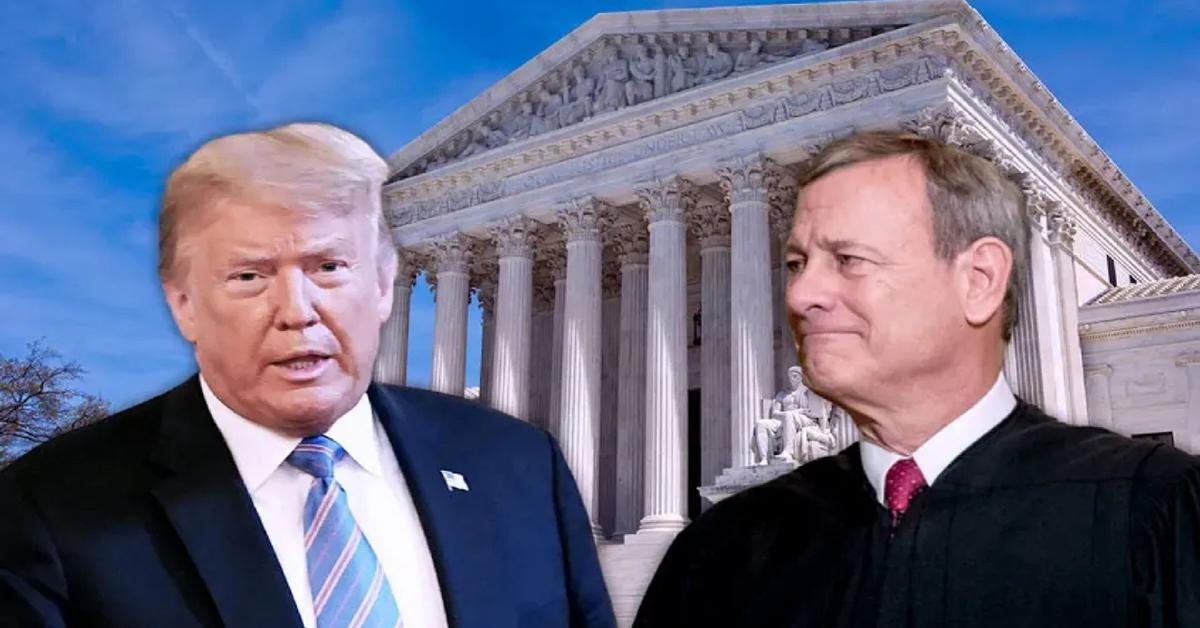
The U.S. Supreme Court reluctantly takes center stage in the 2024 White House race as it decides on Donald Trump's eligibility for another presidential run
The highest court in the country is set to consider arguments in a pivotal election law case, marking its most significant deliberation since its intervention in the 2000 Florida vote recount, in which Republican George W. Bush was narrowly leading Democrat Al Gore.
The issue at hand for the nine justices is whether Trump should be allowed to appear on the Republican presidential primary ballot in Colorado, given his involvement in the Jan. 6, 2021 assault on the U.S. Capitol by his supporters.
The Colorado Supreme Court, citing the 14th Amendment to the Constitution, ruled in December that Trump, the leading candidate for the 2024 Republican nomination, should be prevented from appearing on the ballot due to his role on Jan. 6. The 14th Amendment, ratified in 1868 after the Civil War, prohibits individuals from holding public office if they engaged in "insurrection or rebellion" after previously pledging to support and defend the Constitution. Trump, who is 77 years old, appealed to the Supreme Court to overturn the Colorado ruling and similar efforts in other states to exclude him from the ballot.
The conservative-majority court, which includes three justices appointed by Trump, has allocated 80 minutes for oral arguments, but they are expected to last longer. The Supreme Court has historically been hesitant to become involved in contentious political matters, but this year it finds itself in the midst of the presidential race. In addition to the Colorado case, the court may also decide whether to hear an appeal by Trump regarding a lower court ruling that he does not have immunity from criminal prosecution as a former president and can be tried on charges of conspiring to overturn the 2020 election.
Steven Schwinn, a constitutional law professor at the University of Illinois Chicago, stated that whatever the court decides in the Colorado case "will be viewed by some segment of the population as interfering with the election." Trump's attorneys argued in their brief to the Supreme Court that the "American people – not courts or election officials – should choose the next president of the United States".
"They also contended that at least 60 states and federal courts across the country have declined to remove President Trump from the ballot, and that the Colorado Supreme Court is the only outlier. They urged the Supreme Court to "protect the rights of the tens of millions of Americans who wish to vote for President Trump." Trump's legal team also asserted that Section 3 of the 14th Amendment can only be enforced through "congressionally enacted methods" and not through state courts.
They argued that Section 3 should not apply to Trump because it refers to "officers of the United States," meaning appointed officials. Additionally, they claimed that Trump did not engage in anything that constitutes "insurrection," and that the events of Jan. 6 were not an organized attempt to overthrow or resist the U.S. government. Trump delivered a passionate speech to thousands of supporters in Washington on Jan. 6 before they gathered at the Capitol in an effort to block the certification of Democrat Joe Biden's election victory. He was impeached by the Democratic-majority House of Representatives for inciting an insurrection but was acquitted by the Senate.
Source: Newsroom